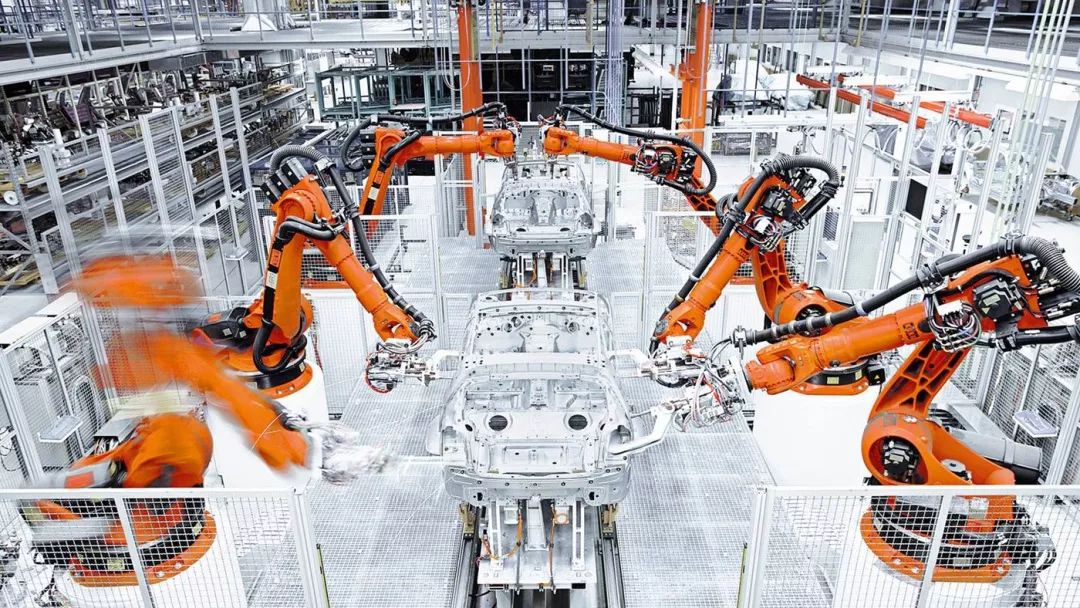
In the complex background of globalization and trade friction, the German automobile industry is standing at a historic crossroads. Recently, the European Union's decision to implement countervailing duties on electric vehicles from China, like a cold current, has directly impacted the German automotive industry represented by Volkswagen Group, causing widespread concern and deep reflection inside and outside the industry. This move not only increases market uncertainty, but also poses an unprecedented challenge to the golden brand of "made in Germany". In the face of such huge pressure, how to find a way out for the German automotive industry to achieve transformation and upgrading has become a key issue to be solved.
The EU's countervailing duty proposal is undoubtedly a major test for the German car manufacturing industry. For a long time, the German automotive industry has enjoyed a worldwide reputation for its exquisite craftsmanship, advanced technology and excellent quality, especially its leading position in the field of traditional fuel vehicles. However, with the vigorous development of the global new energy vehicle market, the rapid rise of Chinese car brands in the field of electric vehicles has made German car manufacturers feel unprecedented competitive pressure. Coupled with the uncertainty of the international trade environment, the German automotive industry is facing multiple challenges such as changes in market demand, rising costs, and supply chain restructuring.
Challenges often breed opportunities. In the face of the rapid growth of the electric vehicle market, if the German automotive industry can adjust its strategy in a timely manner and increase research and development investment in new energy and intelligent network technology, it can not only offset some of the external pressure, but is more likely to take the lead in the change of the global automotive industry. In addition, Germany, as the largest economy in Europe, has a strong industrial base, a sound scientific research system and rich human resources, which are important supports to promote the transformation and upgrading of the automotive industry.
The transformation of "Made in Germany"
First, increase investment in research and development to lead technological innovation. Technological innovation is the core driving force for industrial upgrading. The German automotive industry should continue to increase research and development investment in electric vehicles, autonomous driving, intelligent networking and other fields, and establish close cooperative relations with scientific research institutions, universities and upstream and downstream enterprises to form a collaborative innovation network. Through technological innovation, enhance the competitiveness of products to meet the needs of consumers for high-quality, intelligent and personalized.
Secondly, optimize the production layout to improve efficiency and flexibility. In the face of rapid changes in market demand, the German automotive industry needs to optimize the production layout, improve production efficiency and flexibility. This includes the use of advanced production technologies and management models, such as intelligent manufacturing, lean production, etc., to reduce costs, shorten delivery cycles, and improve product quality. At the same time, we will explore flexible capacity allocation mechanisms, quickly adjust production plans according to market demand, reduce inventory overhang, and improve resource utilization efficiency.
Third, deepen international cooperation and build an open and win-win industrial chain. In today's globalization, it is difficult for enterprises in any country to stay immune. The German automotive industry should continue to deepen international cooperation, actively participate in the division of labor and cooperation of the global automotive industry chain, and build an open and win-win industrial chain ecology. Through close cooperation with international partners, we can jointly address technical challenges, market risks and trade barriers to achieve mutual benefit and win-win results.
Finally, strengthen brand building and enhance brand influence. Brand is the most valuable intangible asset of an enterprise. The German automotive industry should continue to strengthen brand building, improve the brand image and influence by improving product quality, optimizing service experience, strengthening marketing and other means. At the same time, we pay attention to the inheritance and innovation of brand culture, so that "Made in Germany" is not only a product label, but also a cultural symbol and the embodiment of value concepts.
In general, "made in Germany" is facing external pressure and challenges, the German automotive industry needs to keep a clear head, firm confidence and determination, to technological innovation as the lead, to market demand as the guide, to international cooperation as a bridge, and constantly promote industrial upgrading and transformation and upgrading.

Driven by the Trump administration's push to relax financial regulations and the recovery of investment banking business, the market value of the six major banks in the United States has cumulatively increased by approximately 600 billion US dollars by 2025.
Driven by the Trump administration's push to relax financia…
On Christmas evening, U.S. President Trump posted on social…
According to multiple foreign media reports, the recent fin…
The middle class, once regarded as the cornerstone of Ameri…
On December 19th local time, the US military launched a lar…
The Boxing Day sunshine should have cast a false glow of pr…